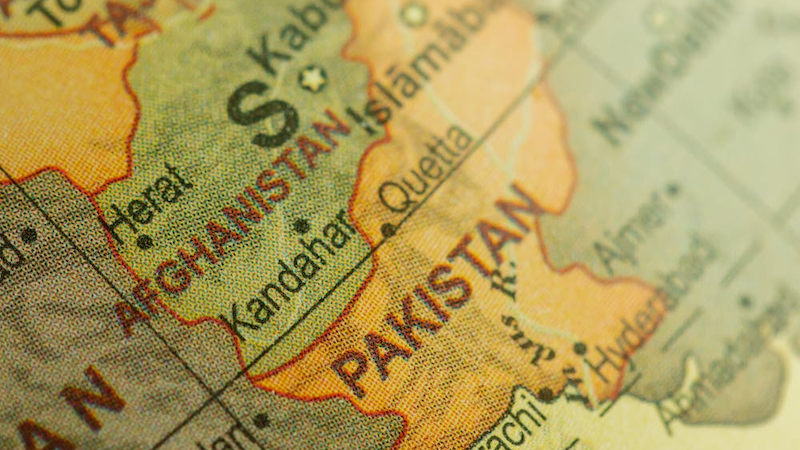Tribal Clashes In Pakistan: The Unfortunate Reality – OpEd

The tribal areas of Pakistan, particularly in regions like North and South Waziristan, have long been known for their complex social dynamics and occasional violent clashes. The recent tragic incident involving Hazrat Naeem, also known as Gilaman Wazir, is a stark reminder of the volatility that exists within these communities. Despite various development efforts, these regions remain fraught with tensions that often escalate into violence, leading to loss of lives and further entrenching animosities.
On a fateful day during a cricket match in Dera Ismail Khan, a scuffle broke out between Azad Dawar and Hazrat Naeem, known to many as Gilaman Wazir. This seemingly minor altercation spiraled into a much more serious conflict when both individuals met again at a program in Islamabad. A heated argument ensued, culminating in Azad Dawar attacking Gilaman Wazir with a knife, leaving him seriously injured. Despite receiving medical treatment at PIMS hospital, Gilaman Wazir succumbed to his injuries on July 10.
The funeral of Gilaman Wazir, held on July 12 in Asda Khel, North Waziristan, drew a large crowd. The event was charged with emotions, with many attendees expressing their sentiments against the state. This reaction highlights a pervasive mistrust and dissatisfaction among the local populace towards the government, often fueled by historical grievances and perceived neglect. Gilaman Wazir was not just a victim of a personal feud but a significant figure within the Pashtun Tahafuz Movement (PTM). A close associate of Manzoor Pashteen, the PTM leader, and a poet who articulated the struggles and aspirations of the Pashtun people, his death resonated deeply within the community. PTM activists, including Manzoor Pashteen and Ali Wazir, visited him during his hospital stay, underscoring his importance to the movement.
Manzoor Pashteen, upon confirming Gilaman Wazir’s death, made a pointed remark about the responsibility of the Pakistani authorities in identifying and prosecuting the perpetrator. He suggested that failure to do so would imply governmental complicity, a serious accusation that reflects the deep mistrust between the PTM and the state. However, the reality of the situation is more nuanced. While it is easy to attribute such violent incidents to state interference or negligence, the truth often lies within the complex web of tribal relations and personal vendettas. In this case, Azad Dawar, driven by personal animosity, was responsible for the attack. This tragic event underscores the broader issue of tribal clashes that continue to plague the region.
The tribal areas of Pakistan have a long history of inter-tribal rivalries and conflicts. These areas, governed by a unique set of customs and traditions, often resolve disputes through mechanisms that can escalate into violence. Despite efforts to integrate these regions more fully into the national framework through initiatives like the merger of the Federally Administered Tribal Areas (FATA) with Khyber Pakhtunkhwa (KP) and development projects under the China-Pakistan Economic Corridor (CPEC), old patterns of conflict resolution and tribal rivalries persist. Development efforts, while crucial, often face resistance due to the deeply ingrained tribal structures and the slow pace of institutional change. Programs aimed at improving education, healthcare, and infrastructure are essential but must be complemented by efforts to address the underlying social and cultural dynamics that contribute to conflict. Empowering local communities, promoting dialogue, and fostering a sense of inclusion and representation are vital steps towards mitigating these clashes.
The killing of Gilaman Wazir by Azad Dawar is a tragic example of how personal feuds can have far-reaching consequences in these volatile regions. It also highlights the challenges faced by movements like the PTM in advocating for the rights and security of their communities while navigating the complexities of local politics and tribal dynamics. For the government, this incident should serve as a wake-up call to intensify efforts towards conflict resolution and community engagement in these areas. Addressing the root causes of tribal violence requires a multifaceted approach that goes beyond mere infrastructural development. It necessitates a comprehensive strategy that includes legal reforms, social integration, and economic opportunities tailored to the unique needs and challenges of these regions.
In conclusion, the tragic death of Hazrat Naeem, alias Gilaman Wazir, is a poignant reminder of the persistent tribal clashes in Pakistan's tribal areas. While development initiatives are important, they must be part of a broader effort to address the social and cultural factors that fuel these conflicts. Only through a holistic and inclusive approach can lasting peace and stability be achieved in these historically volatile regions.
